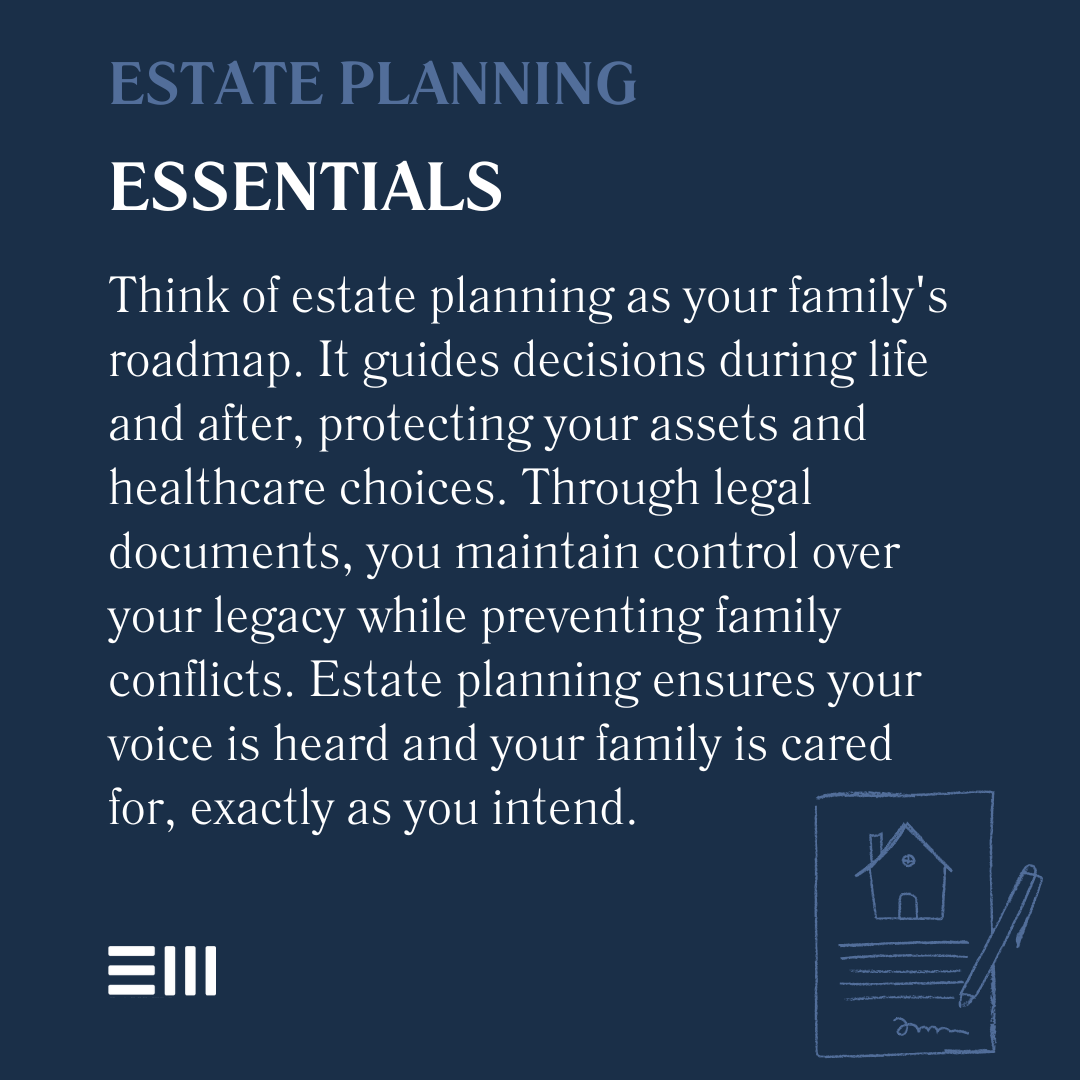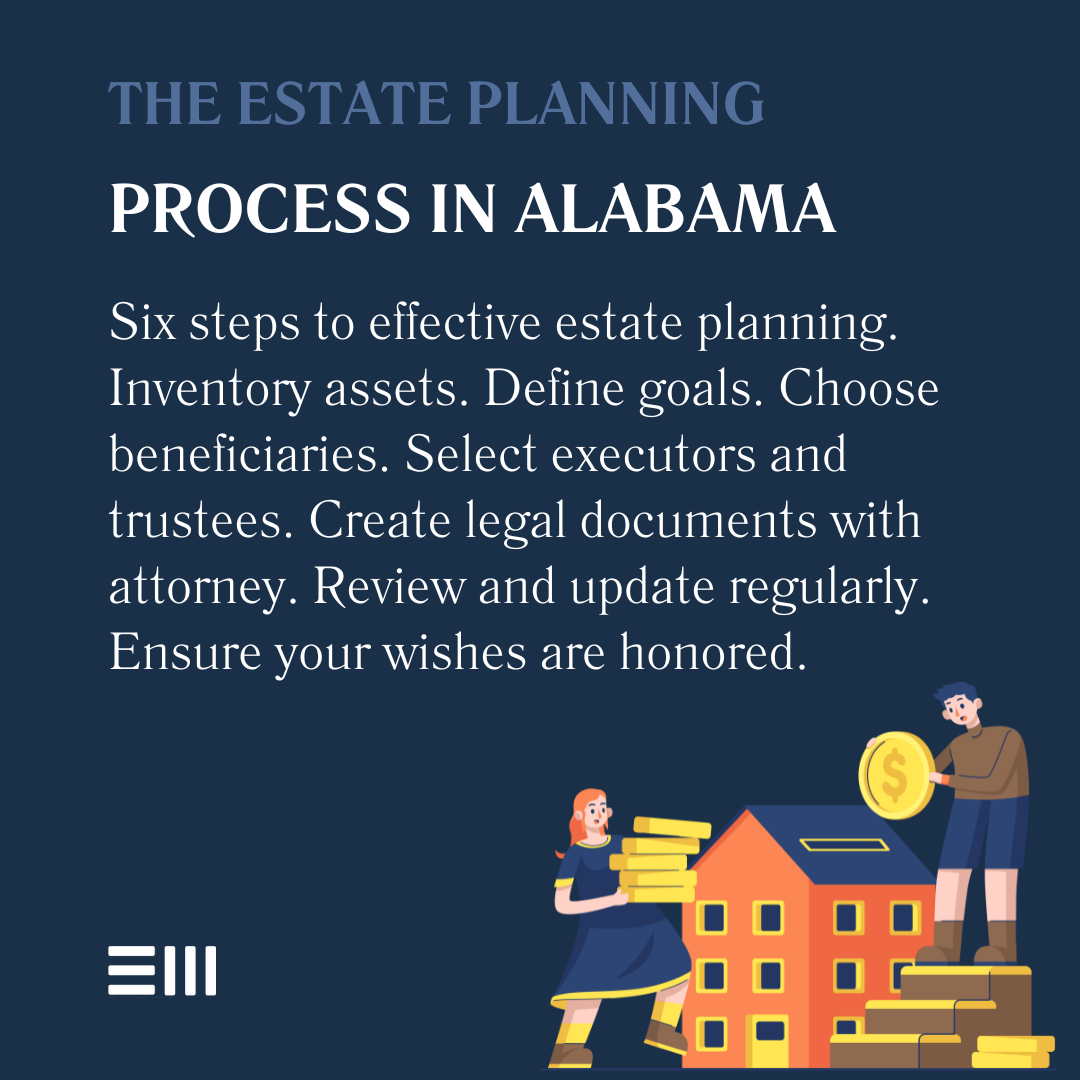Did you know that 67% of Americans don't have an estate plan? But having no plan is just the beginning – even those who do plan often make mistakes that can be just as costly.
Every day, families face unexpected hurdles when discovering their loved ones' estate plans fell short.
From accidentally disinherited children to tax burdens that could have been avoided, these costly oversights ripple through generations.
Understanding Estate Planning
Estate planning is the process of arranging for the management and disposal of your estate during your lifetime and after death.
It involves creating legal documents that specify how you want your assets distributed, who will make decisions on your behalf if you become incapacitated, and how you want your healthcare managed in critical situations.
An effective estate plan can:
- Ensure your wishes are carried out;
- Minimize taxes and legal fees;
- Provide for your loved ones;
- Protect your assets from creditors; and
- Avoid family disputes and legal battles.
By understanding the basics of estate planning, you're taking the first step toward securing your family's future and preserving your legacy.
Top Mistakes to Avoid in Estate Planning
Many people delay estate planning, thinking they're too young or don't have enough assets.
However, unexpected events can happen at any time, and without a plan, your estate could be distributed according to state laws rather than your wishes.
To overcome procrastination:
- Set a specific deadline for creating your estate plan;
- Start with basic documents like a will and advance directive; and
- Consult with an experienced estate planning attorney to guide you through the process.
Remember, the best time to start estate planning is now – don't let procrastination leave your family's future to chance.
Failing to Update Your Estate Plan Regularly
Life changes, and so should your estate plan. Major life events such as marriage, divorce, birth of a child, or significant changes in assets can affect your estate planning needs.
Tips for keeping your estate plan current:
- Review your plan every 3 to 5 years;
- Update your plan after major life events; and
- Reassess your plan when there are significant changes in tax laws.
By regularly reviewing and updating your estate plan, you ensure it remains aligned with your current wishes and circumstances.
Neglecting to Plan for Incapacity
While many focus on what happens after death, planning for potential incapacity is equally important.
Without proper documents in place, your family may struggle to make medical or financial decisions on your behalf.
Essential documents for incapacity planning:
- Durable Power of Attorney;
- Healthcare Power of Attorney; and
- Living Will.
Planning for incapacity is a crucial aspect of comprehensive estate planning that provides peace of mind for you and your loved ones.
Choosing the Wrong Executor or Trustee
The executor of your will or trustee of your trust plays a crucial role in managing and distributing your estate.
Choosing someone unprepared for this responsibility can lead to mismanagement or family conflicts.
Factors to consider when selecting an executor or trustee:
- Trustworthiness and integrity;
- Financial acumen;
- Willingness to serve; and
- Ability to handle family dynamics.
Selecting the right executor or trustee is a critical decision that can significantly impact the smooth execution of your estate plan.
Overlooking Digital Assets
In our increasingly digital world, failing to include digital assets in your estate plan can create complications for your heirs.
Digital assets to consider in your estate plan:
- Social media accounts;
- Email accounts;
- Cryptocurrency;
- Online banking and investment accounts; and
- Digital photos and documents.
By addressing digital assets in your estate plan, you ensure that all aspects of your legacy are properly managed and distributed.
Not Considering Tax Implications
While estate taxes may not affect everyone, failing to consider potential tax burdens can significantly reduce the value of your estate.
Strategies to minimize estate taxes:
- Gifting assets during your lifetime;
- Setting up trusts;
- Charitable giving; and
- Life insurance planning.
Proper tax planning within your estate strategy can help maximize the assets you pass on to your beneficiaries.
Failing to Communicate Your Plans with Family
Not discussing your estate plan with family members can lead to confusion, hurt feelings, and potential legal challenges after your passing.
Tips for discussing your estate plan:
- Have open conversations about your wishes;
- Explain the reasoning behind your decisions; and
- Consider a family meeting with your estate planning attorney.
Open communication about your estate plan can prevent misunderstandings and ensure your wishes are clearly understood by your loved ones.
Improper Beneficiary Designations
Certain assets, such as life insurance policies and retirement accounts, pass outside of your will.
Failing to update beneficiary designations can result in these assets going to unintended recipients.
Steps to ensure proper beneficiary designations:
- Review all accounts with beneficiary designations;
- Update designations after major life events; and
- Consider contingent beneficiaries.
Regularly reviewing and updating your beneficiary designations is a simple yet crucial step in maintaining an effective estate plan.
DIY Estate Planning
While online resources make it tempting to create your own estate plan, this approach can lead to costly mistakes and legal challenges.
Reasons to work with an estate planning attorney:
- Ensure documents are legally valid and properly executed;
- Receive personalized advice based on your unique situation; and
- Stay informed about changes in estate planning laws.
Professional guidance in estate planning can save your heirs time, money, and stress in the long run.
Forgetting to Plan for Long-Term Care
Long-term care costs can quickly deplete your estate, leaving little for your heirs. Incorporating long-term care planning into your estate plan can help protect your assets.
Options for long-term care planning:
- Long-term care insurance;
- Medicaid planning; and
- Irrevocable trusts.
By planning for potential long-term care needs, you can protect your assets and ensure quality care without burdening your family.
Frequently Asked Questions About Estate Planning in Alabama
Estate planning can be complex, and many people have questions about the process.
Here are some common queries to help you better understand this important aspect of financial planning.
What’s the Difference Between a Will and a Trust?
A will is a legal document that specifies how you want your assets distributed after your death. It goes through probate, which is a court-supervised process.
A trust, on the other hand, is a legal arrangement where a trustee holds and manages assets for beneficiaries. Trusts can help avoid probate and offer more control over asset distribution.
When Should I Start Estate Planning?
The best time to start estate planning is now, regardless of your age or wealth.
As soon as you have assets or dependents, you should consider creating at least a basic estate plan.
This can be updated and expanded as your life circumstances change.
How Often Should I Review My Estate Plan?
It's generally recommended to review your estate plan every 3 to 5 years.
However, you should also review and update your plan after major life events such as marriage, divorce, birth of a child, or significant changes in your financial situation.
What Happens if I Die Without an Estate Plan?
If you die without an estate plan (intestate), your assets will be distributed according to state laws. This may not align with your wishes and can lead to family disputes and unnecessary taxes.
Additionally, the court will appoint a guardian for any minor children, which may not be the person you would have chosen.
Can I Change My Estate Plan After It's Created?
Yes, you can change your estate plan at any time as long as you're mentally competent.
In fact, it's important to update your plan periodically to ensure it reflects your current wishes and circumstances.
How Can I Minimize Estate Taxes?
There are several strategies to minimize estate taxes, including gifting assets during your lifetime, setting up irrevocable trusts, and making charitable donations.
An experienced estate planning attorney can help you develop a tax-efficient plan based on your specific situation.
Safeguard Your Legacy: Expert Guidance Awaits
Don't leave your family's future to chance. At Baxley Maniscalco, we understand the complexities of estate planning in Alabama.
Our experienced attorneys are here to guide you through every step of the process, ensuring your estate plan is tailored to your unique needs and goals.
Contact us today to schedule a consultation and start creating your personalized estate plan.


